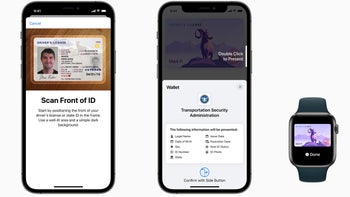Apple's Digital ID terms with participating states are not in the taxpayer's favor

Apple's Digital ID undertaking not only aims to cram your driving licence, student ID, or even your vaccination card in the Wallet app, but has apparently managed to get Uncle Sam to pay for it, too.
CNBC got a hold on a 7-page memorandum that Apple required some of the initial Digital ID rollout states - Georgia, Arizona, Kentucky and Oklahoma - to sign on, but the understanding is that it shows Apple's modus operandi when it comes to these agreements.
It shows that not only does Apple keep tight control over the Digital ID implementation on the state level, but it also leaves the financial burden for administering it to them as well. The security standards that states have to comply with, as well as the devices and applications that Digital ID can be installed on, are the sole discretion of Apple, according to the memorandum.
The states have to "to allocate reasonably sufficient personnel and resources (e.g., staff, project management and funding) to support the launch of the Program on a timeline to be determined by Apple," while they need to also "prominently feature the Program in all public-facing communications relating to Digital Identity Credentials."
In addition, all such marketing and PR efforts by the Digital ID-ed states have to be vetted and reviewed by Apple, leaving very little in terms of implementation leeway to them. This is perhaps why the program's rollout is pretty slow on the uptake, and so far only a few states have signed up for it, though Apple has proven it can play the long game, patiently waiting for a critical mass of participants to tilt the market share scales in its favor. Still, according to Jason Mikula, a fintech consultant:
It’s like a vendor relationship, which makes no sense to me because it’s the states that have the monopoly on what they’re giving to Apple, they could presumably negotiate a much more equal contract. I don’t know of any other example where government-owned systems and identity credentials were made available for commercial purposes in this manner. Apple has a history of leveraging its dominant position in phone hardware and software to preference its own offerings and exact a toll from third parties using its platforms.










Things that are NOT allowed: